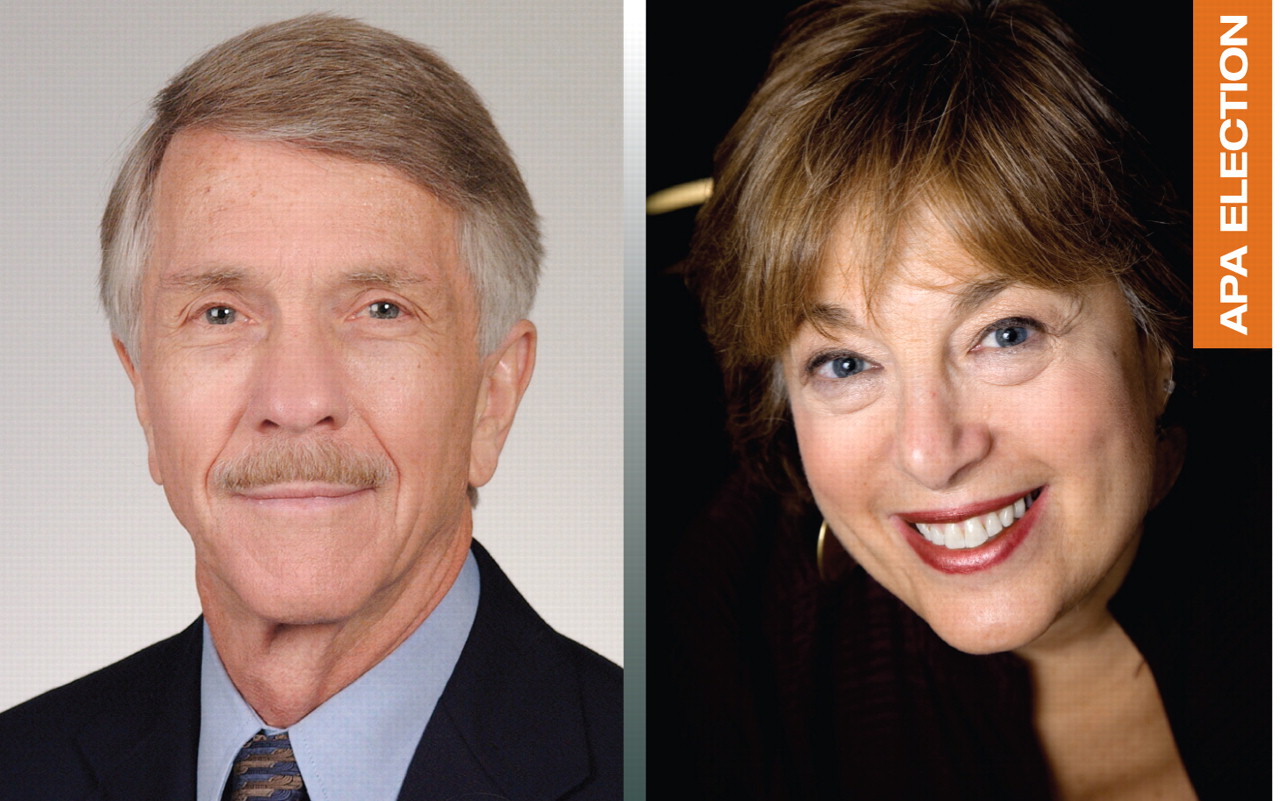John Oldham Chosen APA's Next President-Elect
Abstract
With the choice of John Oldham, M.D., to be the next APA president-elect, APA members are getting a leader with expertise in all major realms of the psychiatric profession and in both the private and public sectors.

John Oldham, M.D. has been elected APA's next president-elect. He will assume that post at the end of APA's 2010 annual meeting in May, when Carol Bernstein, M.D., will become president.
While new to the APA Board of Trustees, Oldham has served as president of two district branches—New York County and South Carolina—is a member of the Board of Directors of American Psychiatric Publishing Inc., and a consultant to APA's Council on Research and Quality Care. He is also president of the American College of Psychiatrists. Oldham is chief of staff at the Menninger Clinic and a professor of psychiatry at Baylor College of Medicine in Houston.
Oldham will officially become president-elect on May 26, at the close of this year's annual meeting in New Orleans, at which time the current president-elect, Carol Bernstein, M.D., will succeed Alan Schatzberg, M.D., as APA president.
Oldham's opponent in this year's president-elect race was Massachusetts psychiatrist Donna Norris, M.D., with Oldham winning 54 percent of the vote to 46 percent for Norris.
Oldham told Psychiatric News that he feels “fortunate and honored” that APA members chose him to serve as president-elect. “I welcome input and advice from all APA members.”
He cited several crucial issues that APA and psychiatry in general have dealt with recently and will continue to be involved with in the next several years. “Parity for our patients is finally becoming real,” he noted, “and we have to make sure that regulators and insurers keep it that way” as the parity law's regulations are implemented.
Turning to DSM-5 development, he emphasized that “informed dialogue” will continue to be a paramount element of the process “to prevent resurgence of old biases against psychiatry as being nonscientific and nonmedical.”
Also high on his agenda, he said, was “harnessing new communication technologies to rebuild APA as a meaningful membership organization with a persuasive, collective voice at the health care table of our country.”

While there was no vice-presidential race this year, there were contests for both treasurer and secretary for the first time since the formerly combined positions were separated because of the workload involved. For treasurer, the incumbent, David Fassler, M.D., of Vermont, out-polled Paul Summergrad, M.D., of Massachusetts. Fassler received 53 percent of the vote, and Summergrad garnered 47 percent.
In the secretary race, current at-large trustee Roger Peele, M.D., of Maryland, beat Fred Gottlieb, M.D, of California, getting 53 percent of the vote.
In addition, two of APA's seven Areas had elections for trustee this year. These are three-year terms. In Area 3, which includes New Jersey, Delaware, Maryland, the District of Columbia, and Pennsylvania, Brian Crowley, M.D., of Washington, D.C., bested incumbent John Urbaitis, M.D., of Maryland. This contest was the 2010 election's closest, with Crowley getting 51 percent to Urbaitis's 49 percent, a difference of 26 votes.
In Area 6, which comprises the five district branches in California, Marc Graff, M.D., of Reseda received 52 percent of the vote, while Barton Blinder, M.D., of Newport Beach garnered 48 percent.
The final contest was for member-in-training trustee-elect (MITTE). Competing to join the Board were Sarah Johnson, M.D., a resident at the University of Louisville, and Samir Sabbag, M.D., a resident at Jackson Memorial Hospital in Miami. Johnson was the victor, gaining 61 percent of the vote to 39 percent for Sabbag.
All of the newly elected trustees take office at the close of the APA annual meeting in May in New Orleans. At that time the current MITTE, Kayla Pope, M.D., will become the member-in-training trustee.
A total of 9,374 members voted in this year's election, which represents about 31 percent of eligible voters. This precent is nearly identical to that for the two previous APA elections. There was, however, a substantial increase this year in the percent of members who chose to submit online rather than paper ballots, with 50 percent of voters selecting this option—up from 42 percent last year and 31 percent in 2008. 



